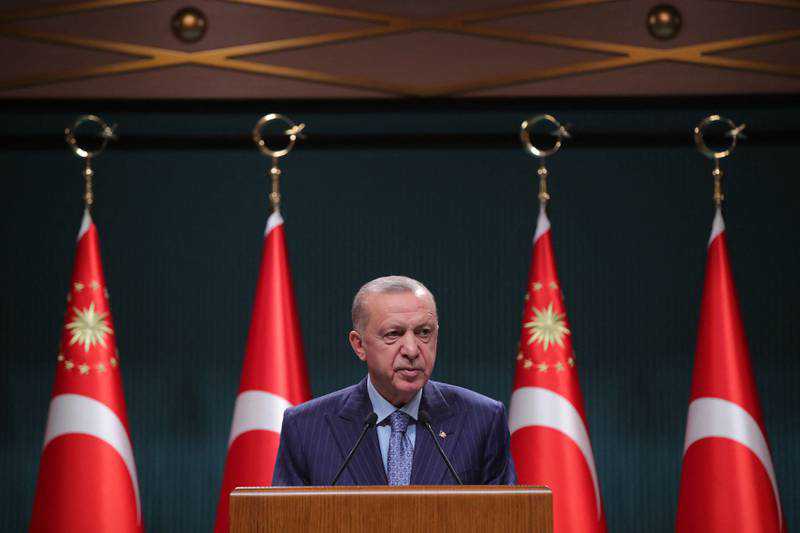Turkey's Erdogan issues U-turn on expelling western diplomats
26 October, 2021

After two days on the brink of a major diplomatic crisis, Turkish President Recep Tayyip Erdogan on Monday rescinded his threat to expel 10 western ambassadors over their support for a jailed activist.
“We believe that these ambassadors, who have fulfilled their commitment to Article 41 of the Vienna Convention, will now be more careful in their statements,” he said in televised remarks following a three-hour Cabinet meeting in Ankara.
The envoys, including those of the US, Germany and France, last week called for the release of philanthropist Osman Kavala, who has been in a Turkish prison for four years awaiting trial on charges many view as unfounded.
The ambassadors of the Netherlands, Canada, Denmark, Sweden, Finland, Norway and New Zealand also joined the appeal.
As Monday’s Cabinet meeting was under way, the American embassy in Ankara tweeted that it “maintains compliance” with Article 41, which outlines diplomats’ duties to respect the laws of the host state and not to interfere in internal affairs. Other missions posted the same message.
“Those who have shaped our country as they wished in the past panicked when Turkey made its own stand,” Mr Erdogan said after the meeting.
He portrayed the “outrageous” statement as a direct attack on Turkey’s judiciary and sovereignty.
“Our intention is never to create a crisis, but to protect the dignity of our country,” the president added.
“Anyone who doesn’t respect the independence of our country and the sensitivities of our nation, no matter what his title is, cannot be accommodated in this country.”
Mr Erdogan announced on Saturday that he had ordered the envoys to be declared personae non gratae, paving the way for them to be removed from Turkey.
The crisis threatened fresh turmoil in Ankara’s troubled relations with Nato allies and EU members.
The Turkish lira plummeted after Mr Erdogan’s weekend statement, hitting an all-time low of 9.85 against the dollar on Monday morning.
Mr Kavala, 64, was acquitted in February last year of charges linked to nationwide anti-government protests in 2013, but the ruling was overturned and joined to charges relating to a 2016 coup attempt. He faces a life sentence if convicted.
The European Court of Human Rights called for his release in 2019, saying his incarceration acted to silence him and was not supported by evidence of an offence.
The Council of Europe says it will start infringement proceedings against Turkey at the end of November if Mr Kavala is not freed.
Although Mr Kavala’s continued incarceration has been widely criticised abroad, Turkey maintains he is being held in accordance with the rulings of its independent judiciary.
Source: www.thenationalnews.com
